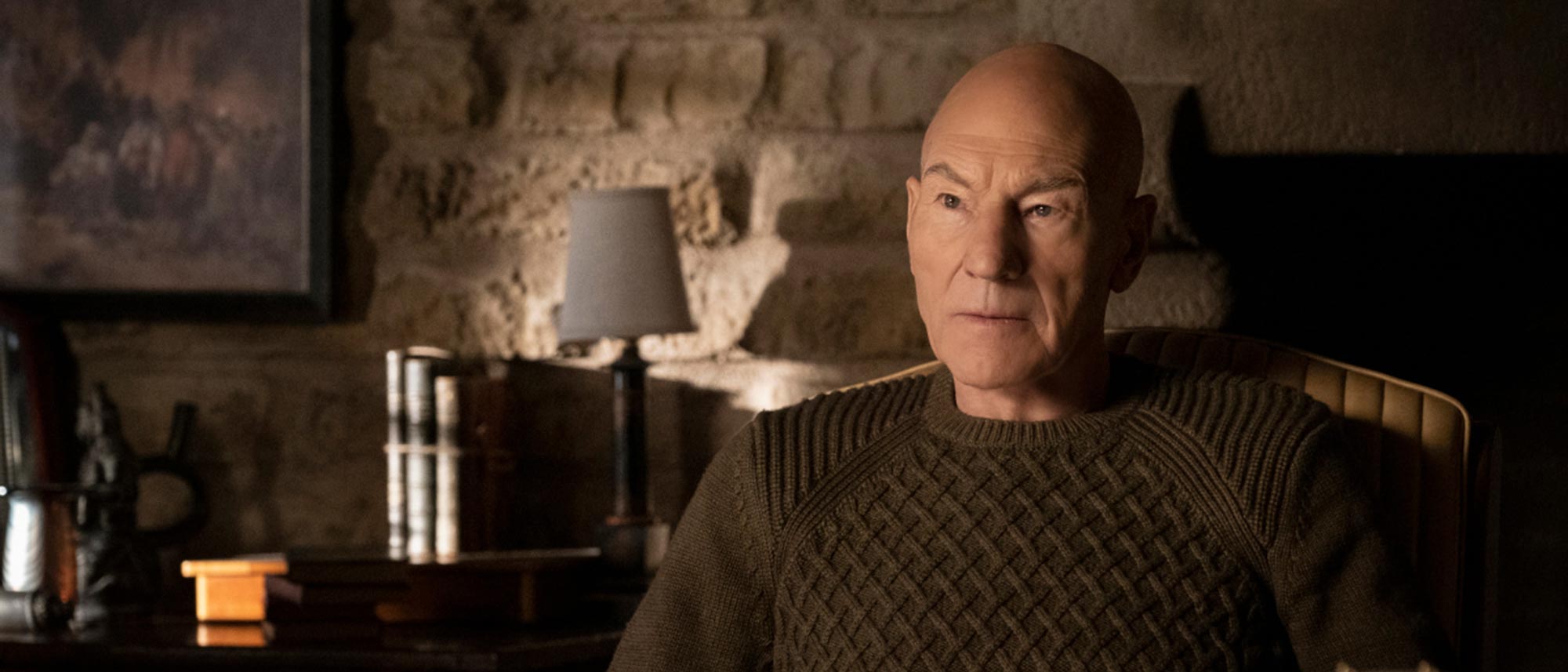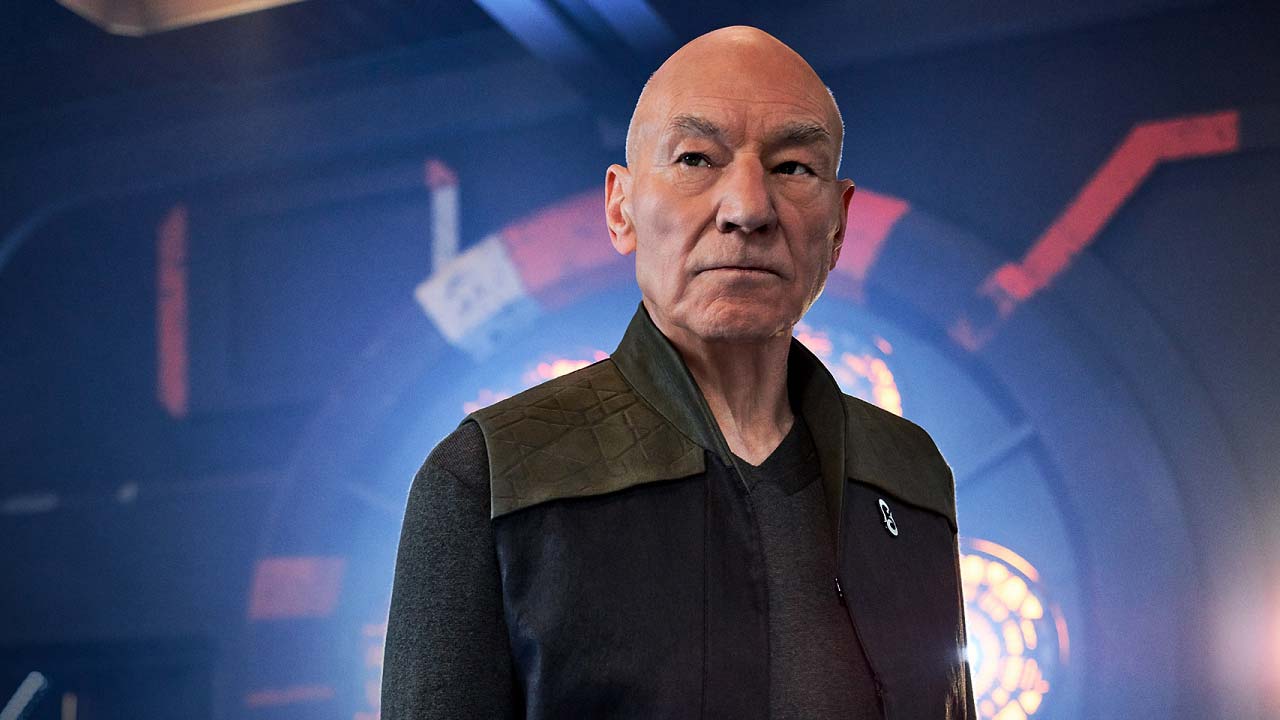Why you can trust Tom's Guide
After Star Trek: Nemesis hit theaters back in 2002, I had no expectation of seeing my favorite starship crew again. Even if the film's tag line hadn't been "a generation's final journey," only three major characters remained on the Enterprise in the end. The series' story was over. The band wasn't getting back together. Star Trek: The Next Generation wouldn't be coming back.
The remarkable thing about Star Trek: Picard, which is available on CBS All Access, is that it abides by those rules. The crew doesn't get back together and pick up where they left off. In fact, they don't get back together at all. Picard picks up more than 20 years after Nemesis ended, and the whole galaxy has moved on. This show isn't about exploring the final frontier; it's about doing the right thing, simply because you're the only one who can.
Star Trek: Picard's first episode, Remembrance, is a strong start to a different kind of Star Trek series: one that's driven primarily by characters rather than big-idea sci-fi. At the same time, Picard does pick up the lingering story threads from Nemesis and the 2009 Star Trek reboot, and it starts to provide satisfying answers for "what happened next?" Remembrance starts off slowly but sets up enough mysteries, and answers enough outstanding questions, to keep viewers hooked for the rest of the 10-episode season.
Speaking of, we've got Picard episode 5 release date details for those already caught up.
The adventure continues — sort of
Before we begin, a word of warning: This review contains MINOR SPOILERS for Remembrance and MAJOR SPOILERS for the original Next Generation shows and movies. The last one came out 18 years ago, though, so I think we're probably OK on that front.
I think it's fair to say that no one turning on Picard for the first time would mistake it for an episode of The Next Generation. The episode begins with a wizened, old Jean-Luc Picard (Patrick Stewart) overseeing his family vineyard in France, while a young woman named Dahj (Isa Briones) witnesses a brutal murder in her Boston apartment. Picard faces off against an antagonistic TV anchor, who grills him about a decades-old falling-out with Starfleet, as Dahj fights off a group of attackers like the heroine in an action movie. From there, a frightened Dahj teams up with a puzzled Picard as the two try to solve the mystery of who wants Dahj dead and to what end.
One thing is clear right away: This is not the '90s conception of Star Trek, where Starfleet is occasionally hardheaded but ultimately noble and the violence is generally broad and bloodless.
Get instant access to breaking news, the hottest reviews, great deals and helpful tips.
At the same time, Picard is very much a sequel to The Next Generation, in story if not in tone. Longtime fans may remember that the sometimes-villainous Romulans have had a rough few decades, between Praetor Shinzon usurping the Romulan Senate in Nemesis and their whole planet blowing up in Star Trek (2009). The way that then-Adm. Picard chose to deal with the Romulan crisis propels some of the story forward in Remembrance.
Without spoiling anything, the Romulans did not suddenly become Federation allies, nor did Picard's humanitarian efforts go unnoticed. Like the best of Star Trek, Remembrance demonstrates that a middle path is possible and that every sentient being must ultimately decide their own place in the galaxy. (This was a huge theme in Nemesis, which I'm sure was not lost on the new show's writing staff.)
The other major component of the plot involves Picard's lingering guilt over the death of his friend and crewmate, Lt. Cmdr. Data (Brent Spiner). After Data's sacrifice in Nemesis, Starfleet experimented with building other synthetic life-forms, but then those "synths" staged an attack on the Utopia Planitia shipyards on Mars. (See the Short Treks episode Children of Mars for more info.) Now, synthetic life-forms are taboo, which is precisely the outcome that Picard hoped to avoid all those years ago during Data's trial in TNG's episode Measure of a Man.
Androids and other forms of synthetic life play an enormous role in Remembrance, through both their presence and their absence. Once the story gets going, Data's legacy hangs heavy over the episode, both what he meant to Picard and what he could have meant to the Federation as a whole. Remembrance is a little wistful and a little bitter — not unlike Picard himself.
In fact, the show's lack of easy answers is one of the things I admire about it most. It would be nice to think that, 20 years later, Picard retired from Starfleet as a hero, having saved the Romulans, made a successful case for android rights and tried to rebuild the family that he lost in Generations. It would have been just as easy to say that Data made a miraculous recovery by superimposing his personality on the primitive android B-4, as Nemesis hinted could happen.
Instead, Data is still dead, B-4 has been deactivated, Picard resigned his commission in anger, the Federation fears synthetic life, and the Romulans are scattered and broken. Picard has friends among his vineyard staff, and he has an adorable pit bull named Number One, but it's clear that he could never replace his family from the Enterprise. It's not a happy ending for one of modern pop culture's most beloved characters.
"I haven't been living," declares Picard at one point in Remembrance. "I've been waiting to die."
A colorful future
Then again, giving Picard a happy ending doesn't seem to be the goal of the show — and that's a good thing. If we checked in on Picard 20 years later, having lived a perfect life up to that point, there would barely be enough material for a Short Trek, never mind an ongoing series. Picard deals with many of the same difficult moral issues that came up in the best episodes of The Next Generation, and I, for one, am glad that they're still worth discussing.
Visually, Picard doesn't feel very much like an episode of The Next Generation, but it doesn't feel much like the recent Star Trek: Discovery, either. Picard isn't shot like an action movie, full of harsh lighting, skewed Dutch angles and a dark, distant aesthetic. A lot of Picard is bright and colorful, from the golden vines in his vineyard to the sparkling San Francisco Bay. Even the new Starfleet uniforms are more colorful than the Nemesis-era blue-and-black ensembles, having gone back to the more traditional yellow-green-red patterns. None of this makes Picard a "happy" show, exactly, but it does provide a stark contrast between the warmth of its protagonist and the coldness of the forces conspiring against him.
Stewart's performance as Picard is impeccable, as always. The secondary cast hasn't gotten much of a chance to step into the spotlight yet, so it's difficult to say how well the new characters will compare with old TNG favorites. But at the very least, Alison Pill as the AI specialist Dr. Agnes Jurati is a pleasure to watch, and I can only hope that she'll have a bigger role as the season progresses.
The show has also demonstrated that it's not at all shy about digging deep into beloved Star Trek lore. You need to have watched Nemesis to understand Remembrance — fair enough; but to catch every last reference, you'll need to know about Cmdr. Bruce Maddox, Captain Picard Day, the Enterprise-E captain's yacht and Data's attempts at creating another android. The show is fairly unapologetic about catering to existing fans. On the one hand, I wonder how it'll play for new fans; on the other hand, catching up on The Next Generation is no great hardship, particularly since you can get all of the episodes on CBS All Access (where Picard also airs, at least in the United States).
Bottom line
There's a scene in Remembrance in which Picard and Dahj, pursued by bad guys, need to dash up a long staircase to the roof of a building. Before Dahj runs on ahead, she stops to help a winded Picard catch his breath and get to cover. This is simply not something that would have happened in The Next Generation — but in TNG, Picard was in the tip-top physical shape required by his rank. In "Remembrance," he's older, weaker and less influential. Some of his best friends are gone, and his grand dreams for the Federation never came to fruition.
In that moment, I realized that Picard is doing something brave by denying us easy answers and satisfying resolutions. I hope that the season continues to frustrate our expectations — and perhaps replace them with an even better story. Star Trek: Picard isn't the show you've been waiting for all these years, but it's also not trying to be that. What it ultimately becomes, we'll have to wait nine more episodes to find out.
Star Trek: Picard airs on CBS All Access in the United States, the CTV Sci-Fi Channel in Canada and Amazon Prime Video elsewhere in the world. Episodes air on Thursdays at 12:01 a.m. PT, although the exact time may vary by region.

Marshall Honorof was a senior editor for Tom's Guide, overseeing the site's coverage of gaming hardware and software. He comes from a science writing background, having studied paleomammalogy, biological anthropology, and the history of science and technology. After hours, you can find him practicing taekwondo or doing deep dives on classic sci-fi.



